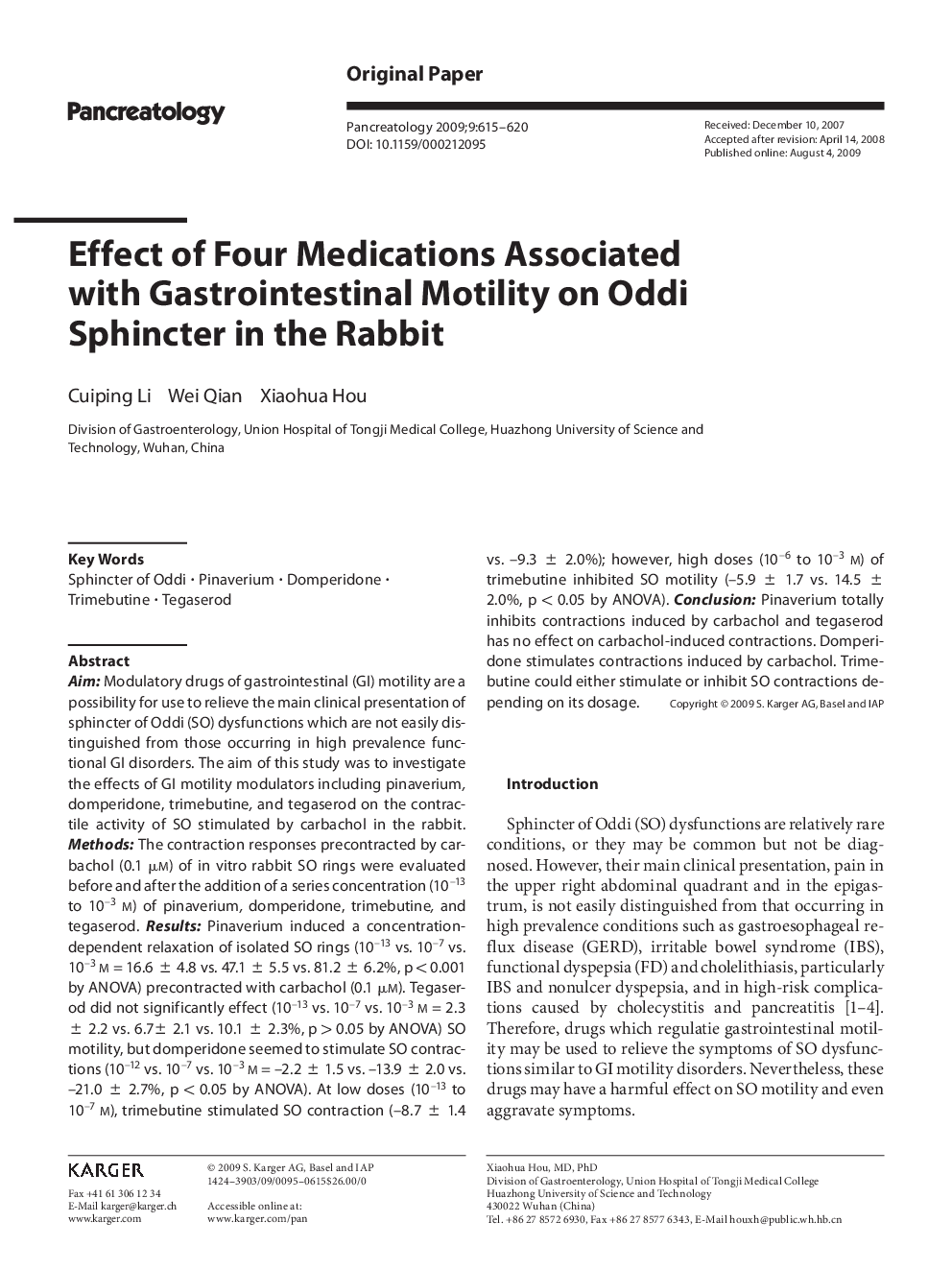| Article ID | Journal | Published Year | Pages | File Type |
|---|---|---|---|---|
| 3318261 | Pancreatology | 2009 | 6 Pages |
Abstract
Aim: Modulatory drugs of gastrointestinal (GI) motility are a possibility for use to relieve the main clinical presentation of sphincter of Oddi (SO) dysfunctions which are not easily distinguished from those occurring in high prevalence functional GI disorders. The aim of this study was to investigate the effects of GI motility modulators including pinaverium, domperidone, trimebutine, and tegaserod on the contractile activity of SO stimulated by carbachol in the rabbit. Methods: The contraction responses precontracted by carbachol (0.1 μM) of in vitro rabbit SO rings were evaluated before and after the addition of a series concentration (10â13 to 10â3 M) of pinaverium, domperidone, trimebutine, and tegaserod. Results: Pinaverium induced a concentrationdependent relaxation of isolated SO rings (10â13 vs. 10â7 vs. 10â13 M = 16.6 ± 4.8 vs. 47.1 ± 5.5 vs. 81.2 8 6.2%, p<0.001 by ANOVA) precontracted with carbachol (0.1μM). Tegaserod did not significantly effect (10â13 vs. 10â7 vs. 10â3 M = 2.3 ± 2.2 vs. 6.7± 2.1 vs. 10.1 ± 2.3%, p>0.05 by ANOVA) SO motility, but domperidone seemed to stimulate SO contractions (1010â12 vs. 1010â7 vs. 1010â3 M = â2.2 ± 1.5 vs. â13.9 ± 2.0 vs. â21.0 ± 2.7%, p<0.05 by ANOVA). At low doses (10â13 to 10â7 M), trimebutine stimulated SO contraction (â8.7 ± 1.4 vs. â9.3 ± 2.0%); however, high doses (10â6 to 10â3 M) of trimebutine inhibited SO motility (â-5.9 ± 1.7 vs. 14.5 ±2.0%, p<0.05 by ANOVA). Conclusion: Pinaverium totally inhibits contractions induced by carbachol and tegaserod has no effect on carbachol-induced contractions. Domperidone stimulates contractions induced by carbachol. Trimebutine could either stimulate or inhibit SO contractions depending on its dosage.
Related Topics
Health Sciences
Medicine and Dentistry
Gastroenterology
Authors
Cuiping Li, Wei Qian, Xiaohua Hou,
